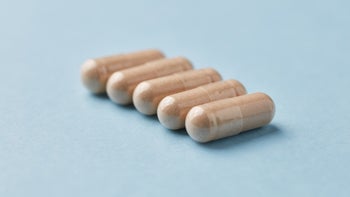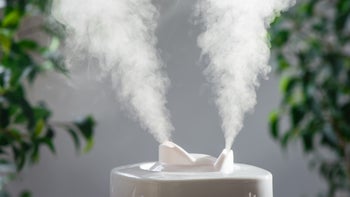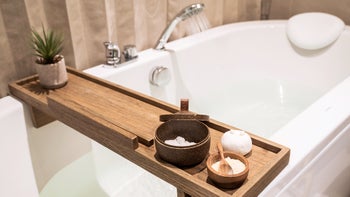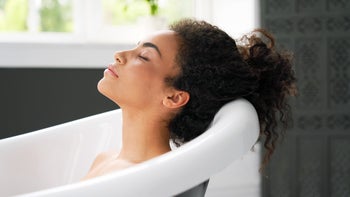
9 Natural Hair-Growth Remedies to Try at Home
Key takeaways:
Natural hair-growth remedies are gaining popularity because they may be gentler than treatments that involve medications.
Caffeine and melatonin applied to the scalp have the most evidence to support their use.
Other natural remedies like scalp massage and the topical application of essential oils and other nourishing oils have less evidence to support them, but they’re generally safe to try.
For surefire hair-loss treatment, consult a dermatologist to find out about science-backed methods that might work for you.
Table of contents
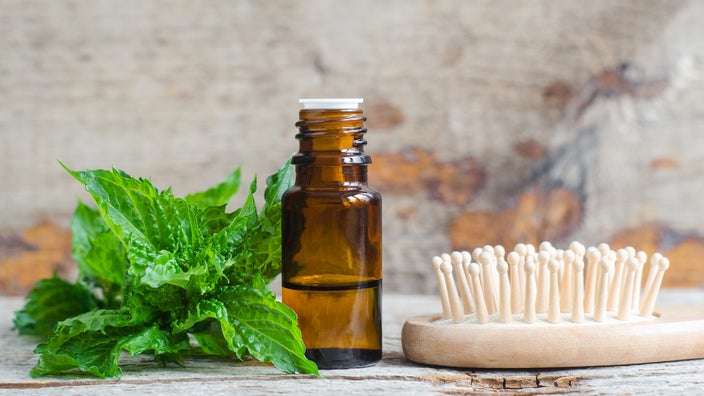
There are many reasons that you might experience increased hair loss. These range from normal, age-related changes to stressful life events. Alopecia (the medical term for hair loss) isn’t dangerous, but it can be distressing to many people.
If you can relate to this, you may be wondering: What helps hair grow fast? Various science-backed options for promoting hair growth already exist. But natural hair-loss remedies are becoming more and more popular. Do they really make a difference? Here’s what you need to know about natural hair-growth products.
Popular natural hair-growth remedies and the science behind them
Natural hair-growth remedies fall under the umbrella of complementary and alternative medicine (CAM), which includes therapies that are free of drugs and manufactured chemicals. These are attractive options for people who want to avoid potential side effects of prescribed alopecia treatments.
Stay healthy with CVS
Shop the brands you trust at CVS. Whether it’s wellness or beauty, get what you need at great prices.

Natural hair-growth products work in several ways to promote and stimulate hair growth, including:
Stimulating hair follicles to encourage new hair growth
Balancing hormones to trigger growth cycles in hair follicles
Improving the conditions of the scalp
Decreasing inflammation and improving scalp health
Are you looking for a hair-growth treatment to stop hair loss and regrow hair naturally? Below, we’ll take a closer look at nine trending methods — from the most to the least effective. We’ll also touch on natural remedies that may help your hair grow faster.
1. Caffeine
Caffeine isn’t just good in your morning cup of coffee. Studies have shown that topical caffeine has benefits for skin and hair health. In fact, out of all the natural hair-growth remedies, caffeine may be the most promising.
Evidence: Applied to the scalp, caffeine seems to have a stimulating effect on hair follicles. This increases hair growth and strengthens hair. Some studies have found that caffeine shampoo may also slow hair loss. And some evidence shows that the combination of caffeine and minoxidil (Rogaine) — a medication applied to the scalp for hair loss — worked better than minoxidil alone. But more research is needed to make solid conclusions about caffeine as a natural hair-growth remedy.
Worth a try? You can safely apply caffeine-containing products to the scalp. But don’t attempt to dramatically increase your coffee consumption. This won’t have any effect on your hair, and having too much caffeine can be dangerous to your health.
Read more like this
Explore these related articles, suggested for readers like you.
2. Melatonin
You may be familiar with melatonin as a sleep-aid supplement. But it’s also an antioxidant that can improve skin health, and it may be a good natural hair-growth treatment.
Evidence: Some evidence suggests that melatonin applied to the scalp may slow hair loss and increase hair density in people with a type of hair loss called androgenetic alopecia. But these studies were small, so more research is needed to see how effective melatonin really is.
Worth a try? Possibly. When applied to the skin, melatonin is absorbed into the bloodstream. There are no severe health risks to using melatonin in this way, but it may affect your sleep-wake cycles.
3. Vitamins and supplements
One reason for hair loss and hair thinning is nutritional deficiencies. By this logic, adding certain vitamins and minerals to a deficient diet could have positive effects on alopecia. And some supplements have been marketed as natural hair-growth remedies for years. But do they work in people who are not vitamin or nutrient deficient?
Evidence: There’s not enough concrete evidence to show that hair-growth supplements work for most healthy people who eat a nutritious and balanced diet. When supplements like biotin and vitamin D do help to regrow hair, it’s in people with low baseline levels of these nutrients. More studies are also needed to see if other supplements, like amino acids cysteine and lysine, can stimulate hair growth.
Worth a try? Going over the daily recommended intake of any vitamin can be dangerous. Depending on which nutrient you are over-supplementing, side effects range from mild to severe. Consult your healthcare professional to see if you may have nutrient deficiencies and how much you need to supplement them.
4. Scalp massage
Scalp massage is an appealing hair-growth treatment. It doesn’t involve pills or injections, and it feels good. In fact, it lowers stress hormones, like cortisol. Scalp massages may also promote hair growth by increasing blood flow to the scalp and stimulating hair follicles.
Evidence: Only a few small studies have studied whether scalp massages can stimulate hair growth. In one, about 330 people with hair loss performed daily scalp massages for 11 to 20 minutes. After 6 months, almost 70% of them noticed less hair loss or increased hair growth. In a smaller study, nine men without hair loss received a 4 minute daily scalp massage. After 6 months, they noticed thicker — but not longer — hair.
Worth a try? Absolutely. Even though there isn’t strong scientific evidence that scalp massages can improve hair growth, they are a low-risk activity that feels good. And it could help.
5. Essential oils (peppermint and rosemary oil)
Essential oils are concentrated plant extracts that retain their organic properties. Two popular essential oils people use to promote hair growth are peppermint oil and rosemary oil.
Evidence: Some animal studies showed that peppermint may promote hair growth, but no studies in humans have shown the same results. In another small study, rosemary oil was as effective as minoxidil treatment in growing hair after 6 months. But more research is needed.
Worth a try? Probably. Essential oils are safe to use so long as you dilute them. They may irritate the skin and cause allergic reactions in some people.
6. Jojoba oil
Jojoba oil lowers inflammation and helps repair the skin’s surface. It’s used as a micro-emulsion in various beauty products because it helps active ingredients get absorbed into the skin. In other words, think of jojoba oil as a vehicle that transports beneficial supplements to the hair follicle.
Evidence: There’s no research that proves jojoba oil alone will help hair growth. But some studies suggest it may help decrease breakage. And, thanks to its chemical composition, it’s great for combining with other nutrients to improve scalp health.
Worth a try? Yes. Applying jojoba oil to your scalp isn’t associated with many risks. Just be aware that like with any product, you may develop an allergic reaction or skin irritation.
7. Castor oil
Castor oil is a vegetable oil that contains ricinoleic acid, which may help lower inflammation.
Evidence: So far, there’s no evidence to show that castor oil can promote hair growth. But it can help moisturize hair, lower inflammation, and it has antibacterial effects. These properties create a healthier scalp for hair follicles to grow.
Worth a try? In very rare cases, castor oil can cause acute hair felting, a condition that leaves hair matted and twisted. For most people, however, castor oil is safe to apply to the scalp. Castor oil is commonly mixed with coconut oil for maximum benefits.
8. Coconut oil
Coconut oil is a triglyceride (fat) with a specific composition that makes it absorb into the hair shaft easily. It’s also full of healthy fatty acids and vitamins.
Evidence: No studies have shown that coconut oil can stimulate hair growth. But it has lubricating properties and can reduce hair protein loss. This may lead to healthier, stronger, and fuller-looking hair.
Worth a try? Absolutely. Coconut oil is safe to use on hair and has many reported benefits. Keep in mind that coconut oil can clog pores and leave hair feeling greasy.
9. Rice water
Rice water has been used as a natural hair-growth product for centuries in many East Asian cultures. Rice water refers to the leftover liquid obtained after rinsing rice. Reported benefits include improving hair elasticity and reducing surface friction.
Evidence: So far, there’s not much evidence to show that rice water works to promote hair growth. Some lab studies suggest that rice bran extract may help with hair growth, but more research is needed in humans.
Worth a try? Absolutely. Including rice water in your hair health regimen is risk-free. Rice water is inexpensive and easy to access.
When to see a doctor about hair-growth treatment
For most people, thinning hair or hair loss is related to genetics or aging. But sometimes it can be a sign of an underlying health problem. Or, you might have a type of hair loss that requires special treatment (like alopecia areata or scarring alopecia).
Get checked out by your physician or other healthcare professional if you notice any of these symptoms along with your hair loss:
Feeling tired or cold, which can be signs of hypothyroidism
A rash made up of round, scaly, red, or brown patches on your face or other sun-exposed skin, like with lupus erythematosus
Scalp itching, redness, or pain, which can be signs of scarring alopecia
Round bald patches on your scalp and other hairy areas, which could mean alopecia areata
The bottom line
Although they’re popular, not many studies have been done on natural hair-growth remedies. This is especially true for vitamins, which may do more harm than good. Topical caffeine and melatonin have some of the most promising results as effective natural hair-growth products. Other treatments, like scalp massage and using oils, are safe and low risk. They may be worth a try, but they may not produce noticeable benefits. Talk with your doctor’s office or healthcare professional if you think you could have an underlying medical condition causing hair thinning or hair loss.
Why trust our experts?



References
Al-Mamun, M. A., et al. (2016). Characterization and evaluation of antibacterial and antiproliferative activities of crude protein extracts isolated from the seed of Ricinus communis in Bangladesh. BMC Complementary Medicine and Therapies.
Almohanna, H. M., et al. (2019). The role of vitamins and minerals in hair loss: A review. Dermatology and Therapy.
Choi, J., et al. (2014). In vivo hair growth-promoting effect of rice bran extract prepared by supercritical carbon dioxide fluid. Biological and Pharmaceutical Bulletin.
Ezekwe, N., et al. (2020). The use of natural ingredients in the treatment of alopecias with an emphasis on central centrifugal cicatricial alopecia: A systematic review. Journal of Clinical and Aesthetic Dermatology.
Fischer, T. W. (2004). Percutaneous penetration of topically applied melatonin in a cream and an alcoholic solution. Skin Pharmacology and Physiology.
Fischer, T. W., et al. (2012). Topical melatonin for treatment of androgenetic alopecia. International Journal of Trichology.
Gad, H. A., et al. (2021). Jojoba oil: An updated comprehensive review on chemistry, pharmaceutical uses, and toxicity. Polymers.
Gade, V. K. V., et al. (2018). An investigation of vitamin D status in alopecia areata. Clinical and Experimental Medicine.
Golpour, M., et al. (2013). Comparing the effectiveness of local solution of minoxidil and caffeine 2.5% with local solution of minoxidil 2.5% in treatment of androgenetic alopecia. Journal of Mazandaran University of Medical Sciences.
Hosking, A., et al. (2019). Complementary and alternative treatments for alopecia: A comprehensive review. Skin Appendage Disorders.
Inamasu, S., et al. (2010). The effect of rinse water obtained from the washing of rice (YU-SU-RU) as a hair treatment. International Journal of Cosmetic Science.
Koyama, T., et al. (2016). Standardized scalp massage results in increased hair thickness by inducing stretching forces to dermal papilla cells in the subcutaneous tissue. Eplasty.
Lin, T., et al. (2018). Anti-inflammatory and skin barrier repair effects of topical application of some plant oils. International Journal of Molecular Sciences.
Maduri, V. R., et al. (2017). ‘Castor oil’ - the culprit of acute hair felting. International Journal of Trichology.
McCabes Pharmacy. (n.d.). The best hair loss oils: What they are and how to use them.
Mysore, V., et al. (2022). Hair oils: Indigenous knowledge revisited. International Journal of Trichology.
National Institute of Environmental Health Sciences. (2022). Essential oils.
Oh, J. Y., et al. (2014). Peppermint oil promotes hair growth without toxic signs. Toxicological Research.
Panahi, Y., et al. (2015). Rosemary oil vs minoxidil 2% for the treatment of androgenetic alopecia: A randomized comparative trial. Skinmed.
Park, S., et al. (2021). Modulation of hair growth promoting effect by natural products. Pharmaceutics.
Rele, A. S., et al. (2003). Effect of mineral oil, sunflower oil, and coconut oil on prevention of hair damage. Journal of Cosmetic Science.
Rusanova, I., et al. (2019). Protective effects of melatonin on the skin: Future perspectives. International Journal of Molecular Sciences.
Trüeb, R. M., et al. (2018). Scalp condition impacts hair growth and retention via oxidative stress. International Journal of Trichology.
Völker, J. M., et al. (2020). Caffeine and its pharmacological benefits in the management of androgenetic alopecia: A review. Skin Pharmacology and Physiology.













